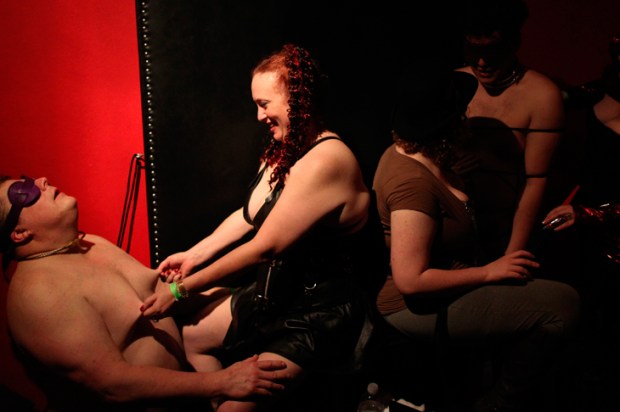I’m sure I wasn’t the only one panting over the Daily Express’s report that ‘Vladimir Putin “wants” to reinstate Russia’s royal family and bring back the Tsars’ (24 June). You don’t have to be an Orthodox autocrat to relish the idea of Bolshevism’s greatest symbolic victory, the deposition and execution of the Romanovs, being turned right on its head.
At his untimely end, Tsar Nicholas II was the most powerful sovereign in the world. Russian feudalism outlived its Western counterpart by three centuries: serfdom was only abolished in 1861, and even then, a sluggish economy, the unswerving loyalty of the Patriarch of Moscow, and good ol’ fashioned police brutality kept the feudal class system largely in place until 1917, when the Empire was abolished by Lenin and his winsome regicides.
Far from being divided stiffly between reds and reactionaries, a number of factions on the moderate Left and Right during Russia’s Civil War were pleased with a compromise of constitutional monarchy. Had the Bolsheviks allowed the Russian people to vote on their form of government, in all likelihood it would’ve been a more restrained tsardom—if only to stop the pyrrhic warfare, executions, and dispossessions that marked Russia’s as one of the most horrifying civil wars in history. Which goes some way toward explaining why the Bolsheviks didn’t opt for a plebiscite. The proletarian dictatorship was inevitable anyway; may as well speed things up a bit.
Restoring the Tsars in a parliamentary monarchy would mean ridding the Kremlin, once and for all, of the spectre of communism. We might forget that Boris Yeltsin chose Putin as his successor largely because he’d been a stalwart of the Soviet establishment. (Yeltsin had run afoul with the public for hastening Russia away from its Soviet identity too quickly. All that fresh air and direct sunlight can be disorienting after spending the better part of a century huddled in the sewers of socialism.)
But, some sixteen years into his reign, Putin’s now finding that planting one foot in Stalinism and the other in reactionary nationalism isn’t as easy as it doesn’t look. Sooner or later he’s going to have to come down on the Left or the Right, and it seems almost inevitable that it will be the Right. What better way to wash his hands of his apparatchik past and prove his authentic conservative credentials than restoring the Russian royal family?
Granted, there are little holes in this theory. One is that Putin hasn’t said a word on the matter—it’s all coming from United Russia lawmaker Vladimir Petrov. Another’s that Petrov doesn’t mention a restoration per se—only that he’d like to ‘stimulate [the Romanov’s] return to Russia’ and ‘give the Royal family members a special status’. So maybe the headline ought to have read, ‘Russian lawmaker wants to repatriate Romanovs.’ Though not quite as sexy, the Russian people—including their dear leader—would be daft not to consider a restoration.
Putin has his supporters today, but with Russophobia reaching Soviet-era highs, it’s likely that the Russian people—and, more importantly, the Russian oligarchs—will choose their next figurehead carefully. Being the bane of the civilized world is not only bad for morale, it’s bad for business. (Never underestimate the power of peer pressure.) At least we never have to worry about the Queen stealing Bob Kraft’s Super Bowl ring off his finger, amusing as that was to this born-and-bred Bostonian.
And Putin may yet save himself from going down in history as an eccentric strongman, whose greatest accomplishment was making Barack Obama look like the kid Neville Chamberlain beat up at school—not, on second thought, a tremendous feat. He could just as well take a page from Franco’s book. The Generalissimo escaped the unprecedented vilification which met his comrades Hitler and Mussolini in no small part because he handed power over to the liberal-minded pretender to the Spanish throne, Juan Carlos I, upon his death in 1970. Sure, Spain isn’t exactly the postmodern paradise the EU hoped it would be, but at least for once the Spanish people are lying in a bed they’ve made themselves.
Got something to add? Join the discussion and comment below.
Get 10 issues for just $10
Subscribe to The Spectator Australia today for the next 10 magazine issues, plus full online access, for just $10.
You might disagree with half of it, but you’ll enjoy reading all of it. Try your first month for free, then just $2 a week for the remainder of your first year.









Comments
Don't miss out
Join the conversation with other Spectator Australia readers. Subscribe to leave a comment.
SUBSCRIBEAlready a subscriber? Log in